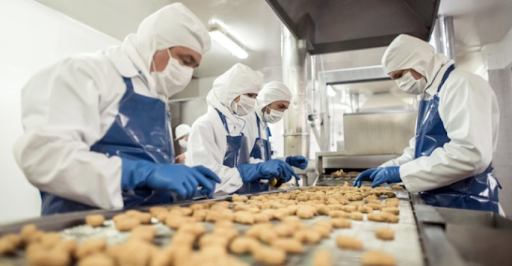The food service industry is one of the largest and fastest-growing sectors worldwide, providing millions of people with careers, meals, and memorable dining experiences. From restaurants and cafes to catering companies and food trucks, the industry encompasses a wide range of businesses focused on preparing and serving food to customers.
The ServSafe Practice Test 2025 plays a vital role in helping food service professionals prepare for the certification exam and ensure compliance with food safety regulations.
Overview of the Food Service Industry
The food service industry covers a wide spectrum of establishments, ranging from fast-food outlets to fine dining restaurants, cafeterias, catering services, and institutional food operations in schools, hospitals, and workplaces. According to global statistics, the industry generates trillions of dollars in revenue annually and employs millions of workers.
The industry is composed of several segments:
- Full-Service Restaurants (FSRs): These establishments offer table service, a diverse menu, and a focus on customer experience.
- Quick-Service Restaurants (QSRs): Also known as fast-food restaurants, QSRs prioritize speed, convenience, and affordability.
- Catering Services: Catering companies provide customized food services for events such as weddings, corporate meetings, and parties.
- Institutional Food Services: These operate in schools, universities, hospitals, correctional facilities, and other institutions where meal preparation is essential.
- Food Trucks and Mobile Services: A growing trend, food trucks offer mobility and unique cuisines to meet customers where they are.
Each segment has unique challenges, but all share a common priority: maintaining food safety and hygiene to protect customers and uphold reputation.
Importance of Food Safety in Food Service Industry
Food safety is critical in preventing foodborne illnesses and ensuring public health. Contaminated food can lead to severe illnesses, lawsuits, and even the closure of a business. According to the CDC, millions of cases of foodborne illness occur annually, often due to improper food handling, storage, or preparation.
To prevent such incidents, food service employees must follow strict protocols, including:
- Proper cooking and holding temperatures
- Safe food storage and handling practices
- Prevention of cross-contamination
- Personal hygiene and sanitation procedures
This is where ServSafe certification becomes indispensable. It is a standardized training and testing program developed by the National Restaurant Association to ensure that food service managers and employees have the necessary knowledge to maintain food safety standards.
Trends Shaping the Food Service Industry in 2025
The food service industry is constantly evolving to meet consumer demands, technological advancements, and regulatory changes.
- Technology Integration
AI-driven inventory systems, delivery robots, and virtual restaurants are gaining traction.
- Health-Conscious Menus
Consumers are increasingly looking for healthier options, plant-based alternatives, and allergen-free meals. Restaurants are adapting by providing clear labeling and focusing on fresh, local ingredients.
- Sustainability and Eco-Friendly Practices
Sustainability is a major focus. Restaurants are reducing food waste, using eco-friendly packaging, and sourcing ingredients responsibly.
- Food Safety and Transparency
This has increased the demand for trained, certified food handlers—making ServSafe certification more important than ever.
- Rise of Food Delivery Services
Due to the dominance of food delivery services like DoorDash, Uber Eats, and Grubhub, restaurants are being forced to optimize their menus and packaging for delivery.
Challenges Facing the Food Service Industry
Despite its growth, the food service industry faces several challenges:
- Labor Shortages
Recruiting and retaining skilled staff has become a persistent issue. Workers with proper certifications like ServSafe have a competitive advantage.
- Food Safety Concerns
With the rise of food allergies and stricter health regulations, maintaining consistent food safety standards has never been more critical.
- Economic Uncertainty
Fluctuating ingredient prices and supply chain disruptions can affect profitability and menu planning.
- Changing Consumer Preferences
Restaurants must continuously innovate to keep up with evolving dietary trends, including vegan and gluten-free diets.
- Compliance with Regulations
Food establishments must adhere to local and federal health codes. Failing to meet these standards can lead to heavy fines and closures.
Why the ServSafe Practice Test 2025 Matters for the Industry
The ServSafe Practice Test 2025 is not just for individuals—it has industry-wide benefits. Here’s why:
- Improves Staff Competence: Well-trained employees reduce the risk of foodborne illnesses.
- Enhances Business Reputation: Customers trust restaurants that prioritize food safety.
- Ensures Regulatory Compliance: Passing the ServSafe exam means the business meets legal requirements.
- Prepares for Emerging Challenges: The 2025 version of the practice test includes updated scenarios that reflect current food safety challenges, such as handling allergens and responding to contamination risks.
Conclusion
The food service industry is both exciting and challenging, offering opportunities for creativity, innovation, and career growth. However, maintaining food safety remains the foundation of success. Certifications like ServSafe are critical in ensuring that employees are equipped with the knowledge and skills to keep customers safe.

